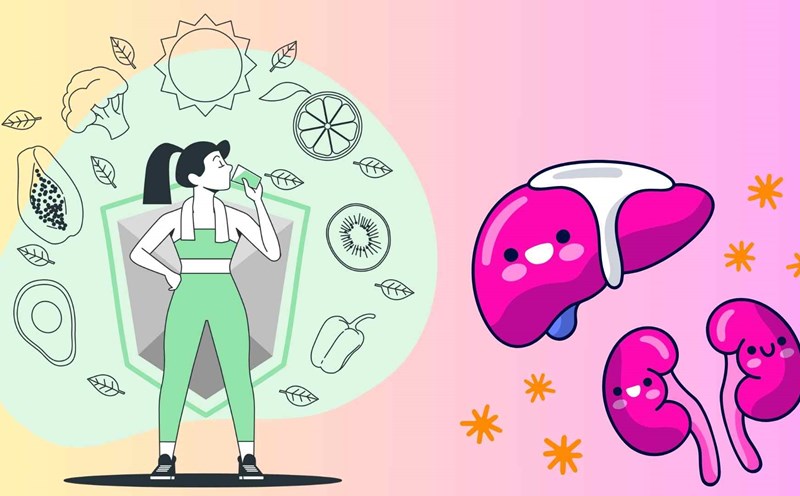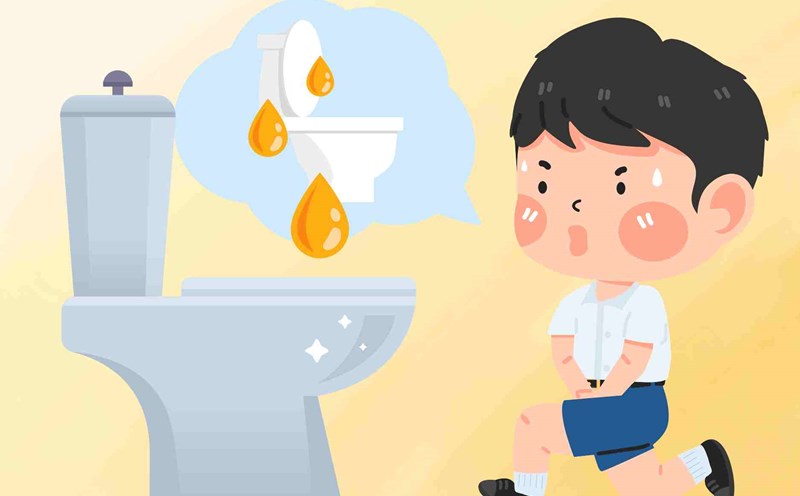Every day, the kidneys have to remove toxins and excess water from the blood, helping to regulate blood pressure by reducing blood volume and regulating blood vessel levels. Thanks to that, blood pressure is maintained stably for the heart to function normally.
In addition, the kidneys also play an important role in balancing electrolytes such as sodium and potassium in the body. If sodium levels are too high, blood pressure will increase; if potassium is excess, it can cause heart rhythm disturbances.
Some warning signs of kidney problems include: red urine, swollen limbs and prolonged lower back pain.
When there is not enough water, the kidneys will have difficulty maintaining fluid balance and filtering toxins, making cells vulnerable. To protect your kidneys, you should drink enough water every day.
Drinking enough water not only supports the filtering function of the kidneys but also helps prevent kidney stones, which are formed from calcium crystals combined with oxalate or phosphate, blocking the flow of urine and causing pain.
The liver is the largest internal organ in the body and takes on more than 250 important functions. In addition to breaking down alcohol, the liver also filters bacteria and toxins out of the blood, while producing bile - a liquid that helps break down fat for the body to absorb more easily.
When the liver is damaged by drinking a lot of alcohol or eating unhealthily, the ability to filter and metabolize will decline. A common result is fatty liver, if not treated promptly, it can lead to hepatitis and cirrhosis.
Just 10 minutes of exercise a day can significantly improve liver function.











